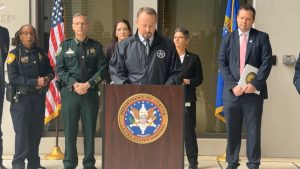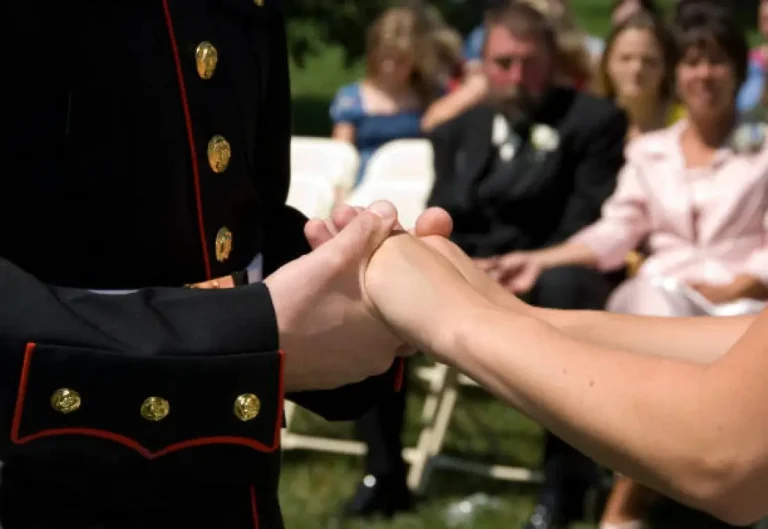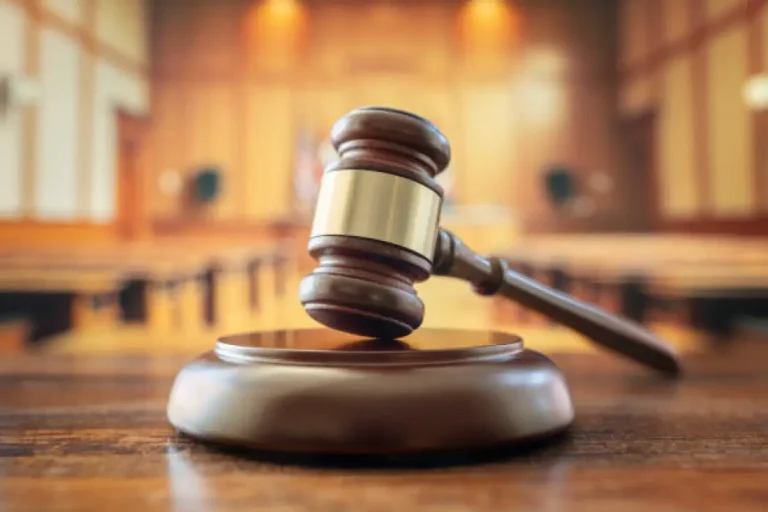Trust your partner’s instincts—they might save your life
Picture this: you’re at your sister’s dream wedding, surrounded by flowers, champagne, and what should be pure joy. The last thing you’d expect is that someone you love is planning to hurt you. But sometimes the people closest to us harbor the darkest secrets, and it takes someone who truly loves us to recognize danger when we can’t see it ourselves.
This is my story about a perfect wedding day that nearly became my last—and how my husband’s protective instincts and professional training saved me from a plot I never saw coming.
The Perfect Sister, The Perfect Wedding
Jessica and I had always been different. Where I was the quiet, bookish older sister, she was the social butterfly who lit up every room she entered. Growing up, our father often praised her natural charisma while describing me as “serious and hardworking”—which, let’s be honest, isn’t exactly the kind of thing that makes a teenage girl feel special.
After our father passed away five years ago, Jessica and I had grown closer than ever. Or so I thought. When she got engaged to David, a charming restaurant owner, I was genuinely thrilled for her. She deserved happiness after some difficult relationships in her twenties.
The wedding was everything Jessica had dreamed of—a stunning venue at the Grand Pacific Hotel in California, designer flowers, and over a hundred guests. I was proud to be her maid of honor, wearing the navy dress she’d personally selected for me because “that color suits you best.”
My husband Robert, a firefighter with twelve years of experience reading dangerous situations, was my plus-one. We’d been married for over a decade, and he still made my heart skip when he walked into a room in his perfectly tailored suit.
When Instinct Kicks In
The ceremony was flawless. Jessica looked radiant, David seemed genuinely smitten, and I cried happy tears during their vows (despite Robert’s teasing that I’d ruin my makeup). During cocktail hour, we mingled with family and friends, toasting the happy couple and sharing stories about Jessica’s journey to finding love.
The reception dinner started beautifully. We were seated at the family table, enjoying lovely conversation with David’s parents and watching Jessica glow in her reception dress. The meal service was elegant—appetizers, soup, and then the fish course that everyone was eagerly anticipating.
That’s when everything changed.
I noticed Robert’s demeanor shift completely. His relaxed, celebratory mood vanished, replaced by the focused alertness I’d seen during his years as a first responder. He was watching the kitchen area with an intensity that made me uncomfortable.
“What’s wrong?” I whispered.
He didn’t answer immediately, but I could see his jaw tighten as he observed the waitstaff bringing out plates. When our server approached with what looked like a beautiful piece of sautéed fish, Robert suddenly leaned close to my ear.
“We’re leaving. Right now.”
The Escape
Robert’s voice had that quality of absolute authority that I’d heard him use during emergency situations. There was no room for discussion, no time for questions. Despite my confusion and embarrassment about leaving Jessica’s reception without explanation, I trusted him completely.
“I’ll explain in the car,” he said, gently but firmly guiding me toward the exit.
The silent drive away from the hotel was one of the longest of my life. Robert’s face was grim, his knuckles white as he gripped the steering wheel. Finally, he pulled over in a quiet residential area and turned to face me.
“Maggie, do you remember your peanut allergy?”
The question seemed to come from nowhere. “Of course, but what does that have to do with—”
“I watched Jessica talking to the chef before they served your plate,” Robert interrupted. “She was pointing specifically at your seat, giving him instructions. Then I saw him take out a small bottle of what I’m certain was peanut oil.”
The Horrible Truth
My world tilted on its axis. Robert explained what he’d witnessed in careful detail—how Jessica had made sure the chef knew exactly which plate was mine, how she’d supervised the addition of an ingredient that could kill me.
We both knew how severe my peanut allergy was. Three years earlier, I’d accidentally eaten food prepared with peanut oil and nearly died. The ambulance ride, the emergency room, the terrifying moment when my throat closed up—it was a trauma that had made both Robert and me hypervigilant about food safety.
“But why would she want to hurt me?” I asked, though even as the words left my mouth, pieces were falling into place.
Robert pulled out some paperwork he’d been keeping in the car—documents related to our father’s estate. The will named me as the primary beneficiary, receiving 70% of his assets while Jessica received 30%. There was also a clause stating that if anything happened to me, my portion would go to Jessica.
The inheritance was substantial—enough to fund David’s restaurant expansion dreams that Jessica had been discussing. Enough to kill for.
The Investigation
Robert immediately contacted the hotel to report suspected food tampering. Within hours, an investigation confirmed our worst fears: peanut oil had indeed been added to my specific plate. Hotel security cameras captured Jessica’s conversation with the chef, and text messages on her phone revealed discussions with David about using “my sister’s inheritance” for business expansion.
The wedding was stopped mid-reception when other guests began showing symptoms of food poisoning—apparently, the contamination had affected more plates than intended.
David was as shocked as I was when he learned the truth. He immediately filed for divorce, unable to begin a marriage built on attempted murder. His horror and remorse seemed genuine, and I believed him when he said he’d had no knowledge of Jessica’s plan.
The Legal Aftermath
Jessica was arrested and charged with attempted murder. Her defense team tried to argue temporary insanity, but the evidence of premeditation was overwhelming. The planning, the timing with the inheritance, the calculated way she’d arranged everything—it painted a clear picture of a woman willing to kill her sister for money.
Our mother was devastated when she learned the truth. She blamed herself for favoriting Jessica over the years, for relying on me to care for our father while never asking Jessica to contribute. But I reminded her that Jessica’s choices were her own—we can’t control how others respond to their circumstances.
Lessons Learned
This experience taught me several crucial lessons that I want to share with other women:
Trust your partner’s instincts. Robert’s professional training as a firefighter had taught him to notice details and recognize dangerous situations. When someone who loves you and knows you well senses danger, listen to them—even if it means leaving a family celebration early.
Document everything. The hotel’s security cameras and Jessica’s text messages provided the evidence needed to prove her guilt. In family situations involving money or inheritance, keep records and stay aware of unusual behavior.
Blood doesn’t guarantee loyalty. The people who truly love you are the ones who protect you, support you, and put your wellbeing first. Those relationships matter more than genetic connections.
Pay attention to financial motivations. Inheritance disputes can bring out the worst in people. Be cautious when large sums of money are involved, and consider how your estate planning might affect family dynamics.
Trust your gut. Looking back, there were small signs that something was off—Jessica’s questions about the inheritance, her unusual interest in my allergy management, subtle changes in her behavior. I dismissed these red flags because I wanted to believe the best about my sister.
The Road to Recovery
The immediate aftermath of Jessica’s arrest was emotionally devastating. I found myself questioning everything I thought I knew about family, trust, and my own judgment. How had I missed the signs? How could someone I’d shared a childhood with, someone I’d comforted through breakups and celebrated successes with, look me in the eye while planning my death?
Therapy became essential. Dr. Sarah Chen, a trauma specialist who works with victims of family violence, helped me understand that my experience was more common than I’d realized. “Family-perpetrated violence is often the most psychologically damaging,” she explained during one of our sessions. “We expect our family members to be our safe harbor, so when they become the source of danger, it shatters our fundamental assumptions about trust and safety.”
The therapy sessions weren’t easy. I had to confront uncomfortable truths about the family dynamics I’d accepted for years. Jessica’s golden child status hadn’t just been harmless favoritism—it had created a sense of entitlement that ultimately led to her believing she deserved what was mine, regardless of the cost.
Robert attended several sessions with me, and we worked on strengthening our communication around safety and trust. He had to process his own trauma from that night—the weight of potentially watching his wife die if he hadn’t acted quickly enough. “I keep thinking about what would have happened if I’d been in the bathroom when they served the fish course,” he told Dr. Chen. “I might have lost her forever.”
Understanding the Warning Signs I Missed
Looking back with the clarity that distance provides, I can now see red flags that I dismissed or rationalized away. Jessica’s newfound interest in my health and dietary restrictions had seemed caring at the time. She’d asked detailed questions about my allergy symptoms, how quickly they onset, and what emergency protocols looked like. I’d been touched that she was finally showing concern for my wellbeing—instead, she was gathering intelligence for her plan.
There had also been subtle changes in her behavior around inheritance discussions. When we’d met with Dad’s lawyer to finalize the estate, Jessica had asked very specific questions about what would happen if something happened to me. At the time, I’d attributed this to general curiosity about legal procedures. Now I understand she was mapping out her path to the full inheritance.
Her relationship with David had also shifted in ways I hadn’t fully appreciated. What I’d seen as Jessica finally maturing and getting serious about her future was actually her finding someone whose business dreams aligned with her financial needs. The restaurant expansion plans they’d discussed weren’t just ambitious entrepreneurship—they were the motivation for murder.
The Community Response
One of the most surprising aspects of this ordeal was how differently people in our community reacted to the news. Some friends and family members struggled to believe that Jessica could have done something so calculating and cruel. They suggested there must have been a misunderstanding, that perhaps the food contamination was accidental, or that I was somehow misinterpreting the evidence.
This response was almost as painful as the original betrayal. Here I was, the victim of an attempted murder, and some people were more concerned with protecting Jessica’s reputation than acknowledging my trauma. It taught me another valuable lesson: when someone shows you who they are through their actions, believe them—even if others around you prefer a more comfortable narrative.
Fortunately, there were also people who rallied around us with incredible support. My best friend Maria immediately offered to stay with us for the first few weeks after the arrest, knowing I felt unsafe and vulnerable. My mother-in-law, who had always been somewhat reserved with me, became fiercely protective, even offering to testify on my behalf if needed.
The response from Robert’s fire department colleagues was particularly touching. These men and women, who understand danger and protective instincts better than most, validated Robert’s quick thinking and offered both emotional and practical support as we navigated the legal process.
The Legal Journey
The criminal proceedings against Jessica were complex and emotionally draining. As the victim of her attempted crime, I had to testify about our relationship history, the inheritance situation, and the events of the wedding day. Facing her in court was one of the hardest things I’ve ever done.
Jessica’s appearance had changed dramatically during the months between her arrest and trial. The vibrant, charismatic woman who had charmed everyone at her wedding was replaced by someone who looked tired, defensive, and strangely unfamiliar. Her legal team painted her as a victim of postpartum depression (despite not having been pregnant), financial pressure, and family favoritism.
During my testimony, I had to relive not just the wedding night but years of family dynamics that had led to this moment. Jessica’s lawyer tried to portray me as the favored daughter who had manipulated our father against Jessica, suggesting that her actions were a response to years of unfair treatment.
The prosecution, led by Assistant District Attorney Michael Torres, methodically presented the evidence: the security camera footage, the text messages, the financial records, and expert testimony about the lethality of peanut exposure for someone with my level of allergy. The case was strong, but the emotional toll of watching it unfold was enormous.
David testified for the prosecution, explaining how Jessica had discussed the inheritance and restaurant expansion plans. His obvious remorse and cooperation helped establish that the financial motive was real and that Jessica had been actively planning to use the money from my death for their business ventures.
The Verdict and Sentencing
After three days of testimony and less than four hours of deliberation, the jury found Jessica guilty of attempted murder in the first degree, along with additional charges of food tampering and criminal conspiracy. The verdict brought relief but not the closure I’d hoped for.
During the sentencing phase, I was given the opportunity to deliver a victim impact statement. Standing in that courtroom, looking at my sister who had tried to kill me, I struggled to find words that could encompass the depth of betrayal and loss I felt.
“Jessica and I shared a childhood,” I told the court. “We played together, fought together, and I thought we loved each other. The person sitting at that defendant’s table planned my death while I was helping her plan her wedding. She was willing to watch me die—in agony, surrounded by my family—to get money that she felt she deserved more than I did. That level of callousness and greed is something I’m still trying to understand.”
Jessica received a sentence of 15 years to life, with the possibility of parole after serving the minimum term. As she was led away, she looked at me one final time. I searched her face for any sign of remorse, any acknowledgment of what she had done to our family. I saw only anger and what looked like resentment that her plan had been discovered.
Rebuilding Trust and Relationships
One of the most challenging aspects of recovery was learning to trust my instincts about people again. If I could be so wrong about someone as close to me as Jessica, how could I trust my judgment about anyone else? This fear of misjudgment extended to new relationships and even affected some existing friendships.
Dr. Chen helped me understand that betrayal trauma often leads to hypervigilance and difficulty trusting others. “Your trust wasn’t misplaced because you’re a bad judge of character,” she explained. “It was violated by someone who deliberately deceived you over many years. That’s very different from simply misjudging someone’s intentions.”
Working through these trust issues required patience from Robert and my close friends. There were times when I questioned their motives for seemingly innocent actions, times when I overanalyzed conversations for hidden meanings, times when I felt paranoid and exhausted from the constant vigilance.
Robert was incredibly patient during this period. He understood that my hypervigilance wasn’t about him personally but about my trauma response. He made himself as transparent as possible, showing me his phone when I seemed anxious, explaining his whereabouts without being asked, and consistently demonstrating through his actions that his priority was my safety and wellbeing.
The Ripple Effects on Other Relationships
Jessica’s actions didn’t just affect our immediate family—they sent shockwaves through our extended network of relatives and friends. Some relationships were strengthened by the crisis, while others were damaged or destroyed entirely.
My relationship with our mother became more honest and direct than it had ever been. She had to confront her role in creating family dynamics that might have contributed to Jessica’s sense of entitlement. We spent many difficult but necessary conversations examining how favoritism and unequal expectations had shaped both Jessica’s and my understanding of our worth within the family.
“I failed both of my daughters in different ways,” Mom told me during one particularly emotional conversation. “I put too much pressure on you to be the responsible one while letting Jessica believe that charm and beauty were enough to get through life. I created a dynamic where you had to earn love through service while she felt entitled to receive it without giving anything back.”
Some extended family members struggled to accept the reality of what Jessica had done. A few cousins and aunts maintained that there must have been extenuating circumstances or that the punishment was too harsh. These relationships became strained or ended entirely when they persisted in minimizing the seriousness of attempted murder.
However, other relationships deepened and became more meaningful. My cousin Rachel, who had always been somewhat distant, reached out to share that she had experienced financial manipulation from a family member and understood the unique pain of family betrayal. We developed a close friendship based on mutual support and understanding.
Professional and Career Impact
The stress and trauma of the situation also affected my work as a real estate agent. For several months, I struggled with concentration, had difficulty sleeping, and found it hard to trust new clients or navigate negotiations effectively. My broker, understanding the circumstances, allowed me to reduce my client load and take time for recovery.
Interestingly, some clients who learned about my story became more loyal and referred additional business to me. They saw my survival and resilience as positive qualities and trusted me to handle their real estate needs with the same determination I’d shown in handling my personal crisis.
I also began speaking at domestic violence awareness events and community safety workshops, sharing my story to help others recognize warning signs of family financial abuse and manipulation. These speaking engagements became a source of healing and purpose, transforming my traumatic experience into a tool for helping others.
Financial Recovery and Security
Beyond the emotional healing, there were practical financial considerations to address. Jessica’s legal bills and the costs associated with the investigation had created some temporary financial strain, though nothing compared to what we would have faced if her plan had succeeded.
Robert and I worked with a financial advisor to reassess our estate planning, insurance coverage, and security measures. We updated our wills to include specific provisions that would prevent anyone from benefiting financially from harming us, and we established emergency funds that would be immediately available if we ever faced similar threats.
We also invested in home security systems and took personal safety courses together. While we didn’t want to live in fear, we recognized that being prepared for potential threats was a reasonable response to what we’d experienced.
The Long-Term Impact on My Health
The stress of the attempted murder and subsequent legal proceedings took a significant toll on my physical health. I developed anxiety-related digestive issues, experienced frequent headaches, and struggled with insomnia for months after the trial concluded.
Working with my primary care physician, Dr. Janet Rodriguez, we developed a comprehensive approach to managing these stress-related symptoms. This included dietary changes, regular exercise, stress reduction techniques, and careful monitoring of my overall health to prevent the trauma from causing long-term physical damage.
“Trauma literally changes your body’s stress response systems,” Dr. Rodriguez explained. “Your body went through a life-threatening experience and then months of legal stress. It’s going to take time for your nervous system to recalibrate and return to normal functioning.”
The recovery process included learning new coping mechanisms for stress and anxiety. I took up yoga, began practicing meditation, and discovered that gardening provided a therapeutic outlet that helped me feel grounded and peaceful. These weren’t just temporary stress relievers—they became permanent lifestyle changes that improved my overall wellbeing.
Moving Forward
Today, nearly two years after that terrifying wedding night, I’ve built a life that’s more authentic and secure than before. The experience taught me to value quality over quantity in relationships, to trust my instincts and those of people who’ve proven their loyalty, and to prioritize my safety and wellbeing without guilt or apology.
Robert and I have grown even closer through this ordeal. He’s not just my husband—he’s my trusted partner who proved he would literally save my life when it mattered most. Our relationship has a depth and strength that comes from weathering serious crisis together and emerging more united than before.
I’ve also learned to appreciate the simple pleasures of safety and normalcy in ways I never did before. A quiet evening at home with Robert, a dinner with friends where I don’t have to worry about food tampering, a family gathering where everyone present genuinely cares about each other’s wellbeing—these experiences have become precious in a way they never were before my brush with mortality.
The inheritance money that Jessica tried to kill me for has been used primarily for charitable purposes and community safety initiatives. There’s a certain poetic justice in using funds that were meant to reward murder for programs that prevent violence and support victims of family abuse.
Final Thoughts
If you take anything from my story, let it be this: surround yourself with people who protect you rather than those who would harm you for personal gain. Pay attention to the actions of those around you, not just their words. And never underestimate the power of a partner who truly has your back.
Robert didn’t just save my life that night—he showed me what real love looks like. It’s not grand gestures or perfect wedding photos. It’s the quiet vigilance of someone who watches out for your safety even at a family celebration, who trusts their instincts even when it means social awkwardness, who puts your wellbeing above all other considerations.
That’s the kind of love worth having. That’s the kind of family worth building.
Most importantly, remember that you deserve to be safe, valued, and protected by the people in your life. If someone’s actions consistently contradict their words of love and care, believe their actions. Your safety and wellbeing matter more than maintaining comfortable illusions about toxic relationships, even with family members.
The person who truly loves you will be the one standing guard while you’re vulnerable, the one who notices danger when you’re distracted by joy, the one who prioritizes your life over social conventions. Hold onto those people tightly—they’re the real family, regardless of blood relations.

Emily Johnson is a critically acclaimed essayist and novelist known for her thought-provoking works centered on feminism, women’s rights, and modern relationships. Born and raised in Portland, Oregon, Emily grew up with a deep love of books, often spending her afternoons at her local library. She went on to study literature and gender studies at UCLA, where she became deeply involved in activism and began publishing essays in campus journals. Her debut essay collection, Voices Unbound, struck a chord with readers nationwide for its fearless exploration of gender dynamics, identity, and the challenges faced by women in contemporary society. Emily later transitioned into fiction, writing novels that balance compelling storytelling with social commentary. Her protagonists are often strong, multidimensional women navigating love, ambition, and the struggles of everyday life, making her a favorite among readers who crave authentic, relatable narratives. Critics praise her ability to merge personal intimacy with universal themes. Off the page, Emily is an advocate for women in publishing, leading workshops that encourage young female writers to embrace their voices. She lives in Seattle with her partner and two rescue cats, where she continues to write, teach, and inspire a new generation of storytellers.









